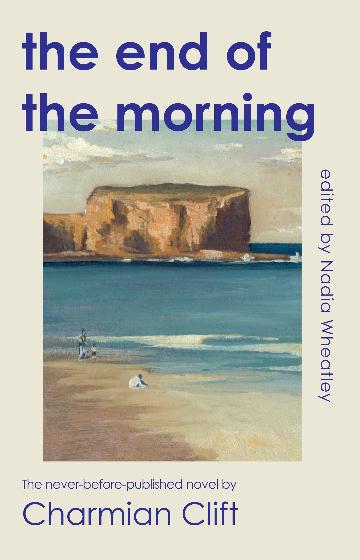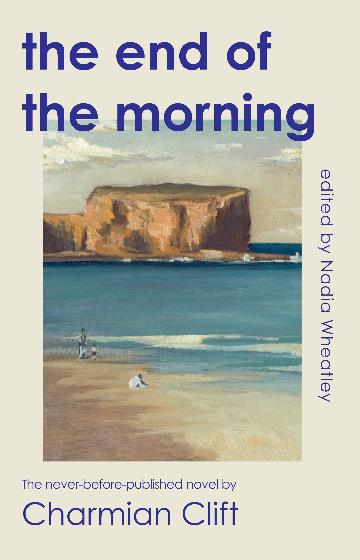Charmian Clift
the end of the morning
the end of the morning
Couldn't load pickup availability
Peta's Review
Of the end of the morning, Charmian Clift writes that it is a “book about young dreams and young longings and …filled with sand and sea and sun and wind and seaweed draped on the front picket fence after a storm. …I don’t know what else I can say. The morning ends, and that’s the end of the book.” But the end of the morning does not end; rather, it is left in stasis, so that the reader, fully absorbed, is suddenly left to ponder what might come next.
the end of the morning is, in Nadia Wheatley’s words, “only a fragment of an intended larger work [although] “it stands alone as a novella.” Clift worked on this unfinished work of autobiographical fiction for decades; but always in the shadow of her husband and the more prominent writer George Johnston, she struggled to progress beyond 150 pages. Set in the small quarry town on the NSW south coast, and narrated by Clift’s alter ego, Cressida Morley, the end of the morning vividly describes a childhood in which the “sound of the sea filled the mornings” and “the tunnel in the hill belched fumes like a dragon’s mouth” and when “the quarry whistle blew, the morning was smashed to smithereens.” Although poor, the Morley children (Cordelia, Benedict and Cressida) never felt so; the beach was their nursery, they could swim like fish and fight like tigers, their father “the most remarkable man on earth,” while their mother kept her own quite reckless dreams centred not upon herself but on her children.
Although unfinished, Charmian Clift believed this book to be her most significant work, describing it as having sat “like an owl on my shoulder for years.” While it is incredibly sad that she was unable to complete the manuscript, for me the ending, like the quarry whistle which heralds the end of the morning, affirms Clift’s determination to move beyond the idyllic morning and show us why she is one of Australia’s most significant authors.
Publishers Review
The never-before-published novel by Charmian Clift.
‘In those days the end of the morning was always marked by the quarry whistle blowing the noon knock-off. Since everybody was out of bed very early, morning then was a long time, or even, if you came to think about it, a round time — symmetrical anyway, and contained under a thin, radiant, dome shaped cover…’
During the years of the Great Depression, Cressida Morley and her eccentric family live in a weatherboard cottage on the edge of a wild beach. Outsiders in their small working-class community, they rant and argue and read books and play music and never feel themselves to be poor. Yet as Cressida moves beyond childhood, she starts to outgrow the place that once seemed the centre of the world. As she plans her escape, the only question is: who will she become?
The End of the Morning is the final and unfinished autobiographical novel by Charmian Clift. Published here for the first time, it is the book that Clift herself regarded as her most significant work. Although the author did not live to complete it, the typescript left among her papers was fully revised and stands alone as a novella. It is published here alongside a new selection of Clift’s essays and an afterword from her biographer Nadia Wheatley.
Share


